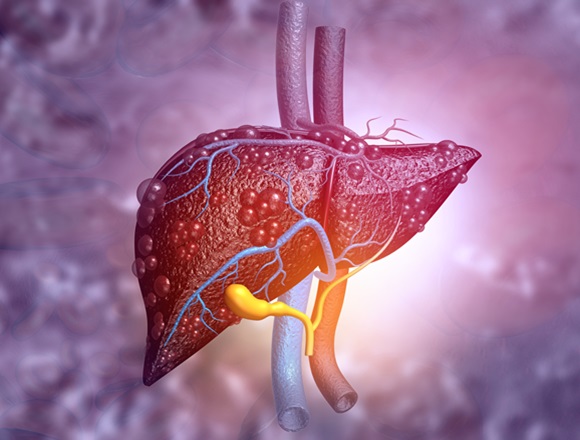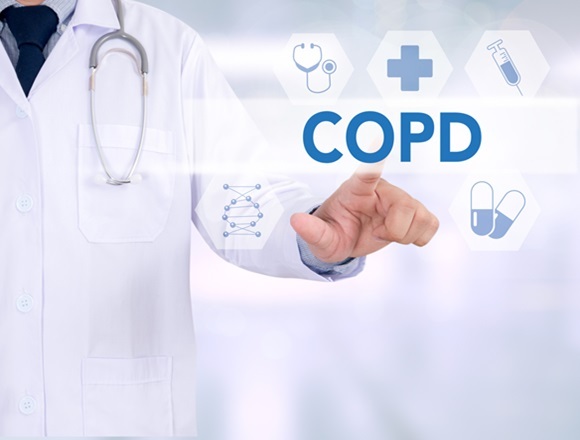References
Aaron SD, Vandemheen KL, Whitmore GA, et al; UCAP Investigators. Early Diagnosis and Treatment of COPD and Asthma - A Randomized, Controlled Trial. N Engl J Med. 2024 Jun 13;390(22):2061-2073. doi: 10.1056/NEJMoa2401389. Epub 2024 May 19. PMID: 38767248.Background: Patients with chronic obstructive pulmonary disease (COPD) or asthma are often undiagnosed, with the result that their respiratory symptoms remain largely untreated.
Methods: This trial used a case-finding method to identify adults in the community without diagnosed lung disease but with respiratory symptoms. Patients with undiagnosed COPD or asthma, based on spirometry testing, were enrolled in a randomized trial to determine whether early diagnosis and treatment by a pulmonologist in comparison with early diagnosis and usual care by a primary care practitioner reduces health-care utilization and improves health outcomes. Patients were allocated to receive either evaluation by a respirologist and an asthma/COPD educator who initiated guideline-directed care or usual care by their primary care physician. All involved clinicians were aware of the spirometry results. The primary outcome was the annualized rate of patient-initiated health-care utilization for respiratory illness (including visits to a nurse practitioner, primary care physician, specialist, or emergency department and hospitalizations). Secondary outcomes included changes from baseline to 1 year in (i) disease-specific quality of life, as assessed with the St George Respiratory Questionnaire (SGRQ), with scores ranging from 0 to 100 and lower scores indicating better health status; (ii) symptom burden, based on the COPD Assessment Test (CAT), with scores ranging from 0 to 40 and lower scores indicating better health status; and (iii) forced expiratory volume in 1 second (FEV1).
Results: Of 38,353 people interviewed, 595 (1.5%) had undiagnosed COPD or asthma and 508 were randomized: 253 to the intervention group and 255 to the usual-care group. The annualized rate of a primary-outcome event was lower in the intervention group than in the usual-care group (0.53 vs 1.12 events/patient-year; incidence rate ratio, 0.48; 95% CI, 0.36-0.63; p < .001). Use of medications (except only short-acting beta-agonists [SABAs] or long-acting beta agonists [LABAs]) was generally higher in the specialist intervention group; for instance, only 7.5% of patients in that group received no medication for the entire study period versus 36.1% patients in the usual-care group who received no medication. At 12 months, the SGRQ score was lower than the baseline score by 10.2 points in the intervention group and by 6.8 points in the usual-care group (difference, -3.5 points; 95% CI, -6.0 to -0.9), and the CAT score was lower than the baseline score by 3.8 points and 2.6 points, respectively (difference, -1.3 points; 95% CI, -2.4 to -0.1). The FEV1 increased by 119 mL in the intervention group and by 22 mL in the usual-care group (difference, 94 mL; 95% CI, 50-138). The incidence of adverse events was similar in both trial groups.
Conclusions: The authors concluded that in identified adults with undiagnosed asthma or COPD, those who received respirologist-directed treatment had less subsequent health-care utilization for respiratory illness than those who received usual care by a primary care physician.
McMaster editors’ commentary: The case-finding rate of 1.5% seems low, thereby suggesting a labor-intensive effort to identify patients with undiagnosed COPD/asthma. Better screening strategies may be needed to identify undiagnosed COPD/asthma so that patients can benefit from specialist-directed and guideline-informed care. Once such patients are identified, specialist care provides likely small benefit in comparison with primary care.
 English
English
 Español
Español
 українська
українська











